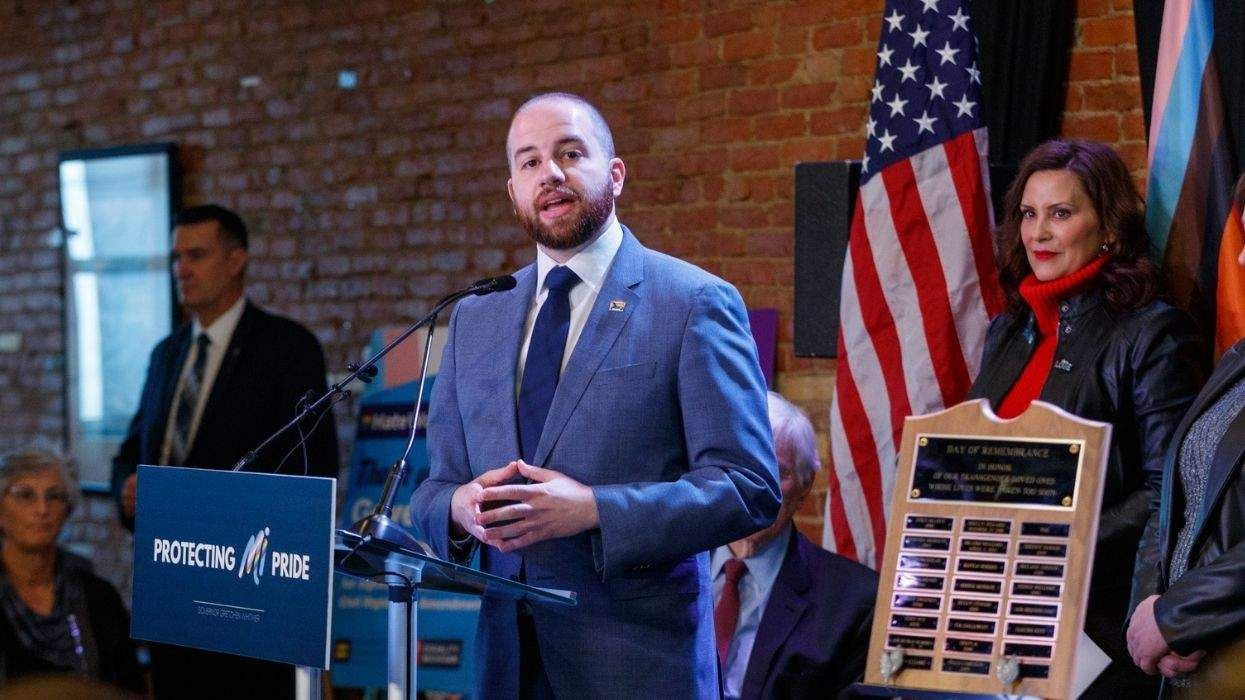After more than 30 consecutive rulings from state and federal courts in favor of marriage equality, a state judge in Tennessee last week broke the judicial winning streak equality advocates have been on since the landmark Supreme Court decision last year in U.S. v. Windsor.
Roane County Circuit Judge Russell E. Simmons Jr. ruled August 5 that Tennessee was not required to grant a divorce to two men who married in Iowa four years ago and were seeking a divorce in Tennessee, upholding the constitutionality of the state's ban on recognizing or performing same-sex marriages, according to Lyle Denniston at SCOTUSBlog.
"Although Judge Simmons's decision was limited to cases involving a divorce when the marriage itself is not recognized, he ruled in sweeping terms," Denniston wrote Monday. "He relied in part upon the Supreme Court's summary decision in 1972 rejecting a constitutional challenge to a Minnesota ban, concluding that the Justices have never abandoned that ruling."
By doing so, Simmons ended a nearly 14-month-long string of judicial victories, where every court -- federal or state -- which considered a state's ban on same-sex marriage found those laws to be a violation of the U.S. Constitution. The overwhelming majority of those pro-equality decisions cited the Supreme Court's June 2013 decision in Windsor when finding that denying same-sex couples the right to marry violates the U.S. Constitution's promises of equal protection.
Like other judges who have arrived at decisions favoring marriage equality, Simmons recognized marriage as a fundamental right. But Simmons continued that logic in a way different than 36 other state and federal judges who have considered the issue.
"However, neither the Tennessee Supreme Court nor the United States Supreme Court has ever decided that this fundamental right under a state's law extends beyond the traditional definition of marriage as a union between one (1) man and one (1) woman," Simmons wrote in his decision.
Simmons also accepted an argument from Tennessee officials -- rejected in every other recent case where it's been advanced -- that the state has a "rational basis" to restrict marriage to opposite-sex couples in the interest of encouraging "responsible procreation."
Simmons ends his seven-page decision by concluding that existing Tennessee law restricting marriage to opposite-sex couples does not violate the Full Faith and Credit Clause of the U.S. Constitution, because "the laws of Iowa concerning same sex marriage is so diametrically opposed to Tennessee's laws, and Tennessee's own legitimate public policy concerning same-sex marriage, that Tennessee is not required by the U.S. Constitution to give full faith and credit to a valid marriage of a same-sex couple in Iowa."
SCOTUSBlog notes that Simmons did suggest final resolution on the constitutionality of Tennessee's voter-approved ban on same-sex marriage and laws like it around the country should ultimately come from a higher court, which has greater authority than a trial judge like himself.
While the now-broken judicial winning streak may seem disheartening to LGBT advocates hoping for nationwide marriage equality, Slate notes that Simmons's decision -- in conjunction with a forthcoming ruling from the federal Sixth Circuit Court of Appeals that is expected to uphold Tennessee's discriminatory marriage laws -- could essentially force the nation's highest court to answer the lingering question about a fundamental right to same-sex marriage.
The more judges buck the court's clear command in Windsor, the sooner the justices can settle this issue once and for all," Slate's Mark Joseph Stern wrote Monday.
Should the Supreme Court decide to consider the merits of same-sex marriage -- an issue it has never before directly addressed -- it the nation's highest court will have at least three cases to choose from, regarding anti-marriage equality laws in Utah, Oklahoma, and Virginia.
















Charlie Kirk DID say stoning gay people was the 'perfect law' — and these other heinous quotes
These are some of his worst comments about LGBTQ+ people made by Charlie Kirk.